Dear CCWT Community,
We, at CCWT, hope you are all able to savor the fresh starts and promising futures as we experience the first few signs of fall! From the faces of new incoming students to the return of familiar faces and brilliant upper-level students, the new academic year has a way of reigniting passions and inspiration.
We've been working this summer to bring you some incredible opportunities to enhance your own skills this fall.
|
|
|
|
Our educational events offer time for you to network, learn from colleagues, and focus on your own career development.
In this issue, you'll also find valuable information and updates about:
• CCWT's 2024 Fall Conference, coming up on October 10th;
• The fantastic lineup of speakers for this fall's webinar series;
• NCA Project's amazing research participant retention rate;
• Tune In to Strive Out's summer institute participation; and
• So much more!
Happy Fall!
|
|
|
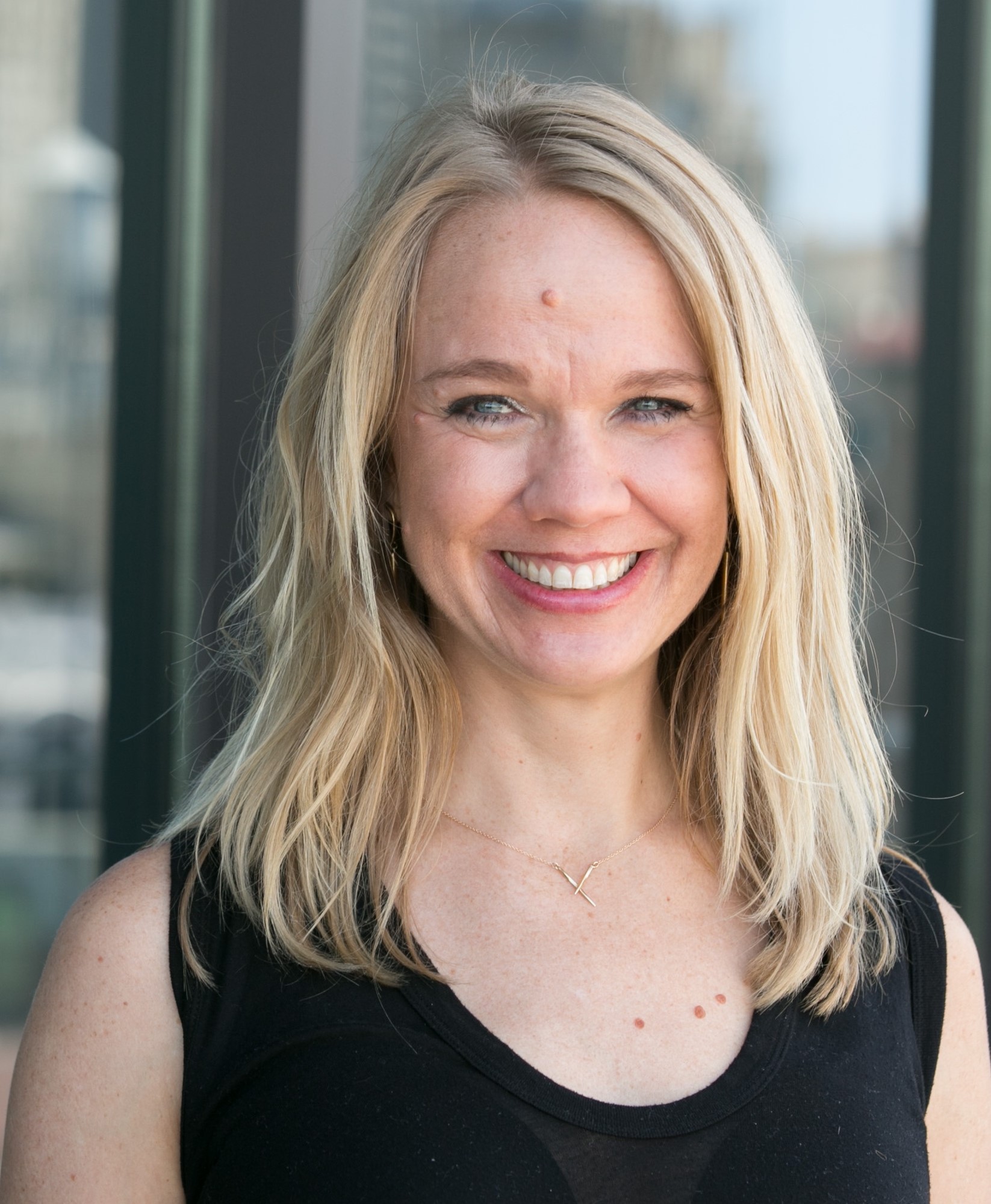
|
Dr. Mindi Thompson
CCWT Executive Director
|
|
|
|
Space is limited for CCWT's 2024 Fall Conference!
Register today to join us for:
★ Student, higher ed, and professional presenters from throughout
the US!
★ Multiple networking opportunities!
★ Breakfast, lunch, and snacks provided!
|
|
|
|
|
|
Our first fall webinar is coming up fast! Don't miss these opportunities for FREE professional development!
Wed, September 18th
Dr. Jodi Vandenberg-Daves
Confronting Perfectionism & Imposter Syndrome
Wed, October 16th
Dr. Mica Estrada
Transforming Leadership Through Kindness
Thur, October 24th
Dr. Lauren Contreras
Latina Undergraduates Envisioning the Future Through Testimonio
Tue, November 5th
Lydia Odegard
Promoting Language Skills in Career Development
|
|
|
|
|
|
Abstract: Internships are increasingly recognized as a critical component of higher education, offering students essential opportunities for career development and professional growth. However, persistent questions remain regarding access to internships, the structure and quality of these experiences, and the need for updated literature reviews to address recent issues in the field. This report presents a literature review of studies published between 2021 and 2023, building upon prior reviews by the Center for Research on College-Workforce Transitions (CCWT). The findings highlight ongoing challenges in accessibility and racial and gender dynamics, the diverse impacts of the COVID-19 pandemic on internship formats, and the varying outcomes of internships based on factors such as supervisor support, task relevance, and social interaction. Recommendations for future research and practice are provided to enhance the effectiveness and equity of internships.
|
|
|
|
|
|
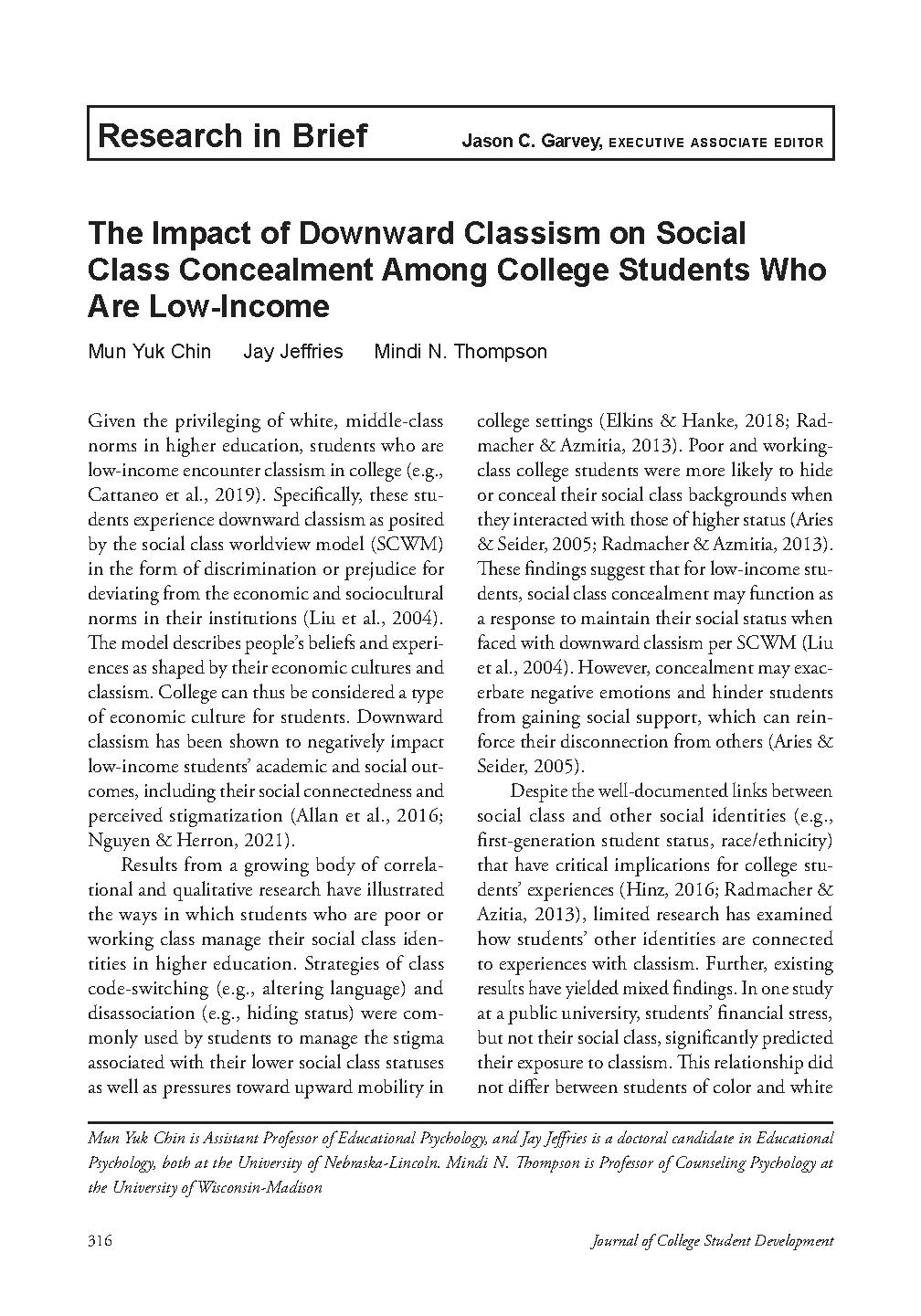
|
Given the privileging of white, middle-class norms in higher education, students who are low-income encounter classism in college (e.g., Cattaneo et al., 2019). Specifically, these students experience downward classism as posited by the social class worldview model (SCWM) in the form of discrimination or prejudice for deviating from the economic and sociocultural norms in their institutions (Liu et al., 2004). The model describes people’s beliefs and experiences as shaped by their economic cultures and classism. College can thus be considered a type of economic culture for students. Downward classism has been shown to negatively impact low-income students’ academic and social outcomes, including their social connectedness and perceived stigmatization (Allan et al., 2016; Nguyen & Herron, 2021).
This study built upon previous research to examine the daily phenomenon of social class concealment among low-income college students attending a large public land grant university in the US and to explore how students’ identities contribute to concealment.
|
|
|
|
|
|
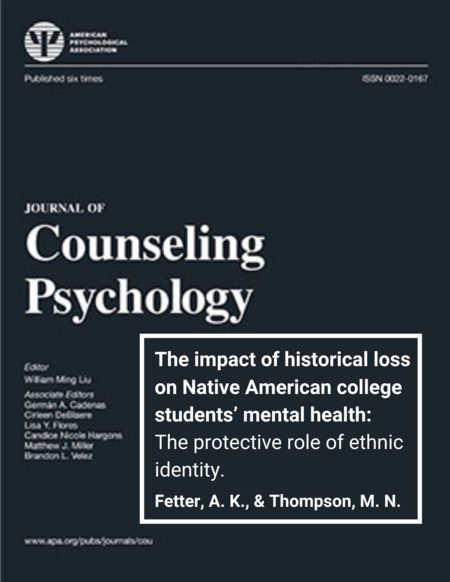
|
Culturally relevant stressors and protective factors are vital to understanding and effectively supporting Native American/Alaska Native (NA/AN) college students’ mental health and well-being. This study examined the theorized pathways among historical loss, well-being, psychological distress, and the proposed cultural buffer of ethnic identity in the indigenist stress-coping model (ISCM). Cross-sectional data were collected via online survey and analyzed using structural equation modeling. Participants were a national sample of 242 NA/AN college students. Participants were predominantly women (n = 185; 76%) and median age was 21 years. Partial support was found for the ISCM. Participants reported frequent thoughts of historical loss, which were associated with lower well-being and higher levels of psychological distress. Ethnic identity moderated the relationship between historical loss and well-being such that those with stronger ethnic identities reported a weaker relationship between historical loss and lower well-being. Results underscore the importance of culturally specific risk and protective factors in NA/AN college students’ resiliency and inform needed interventions and systemic change in higher education. (PsycInfo Database Record (c) 2023 APA, all rights reserved)
|
|
|
|
|
|
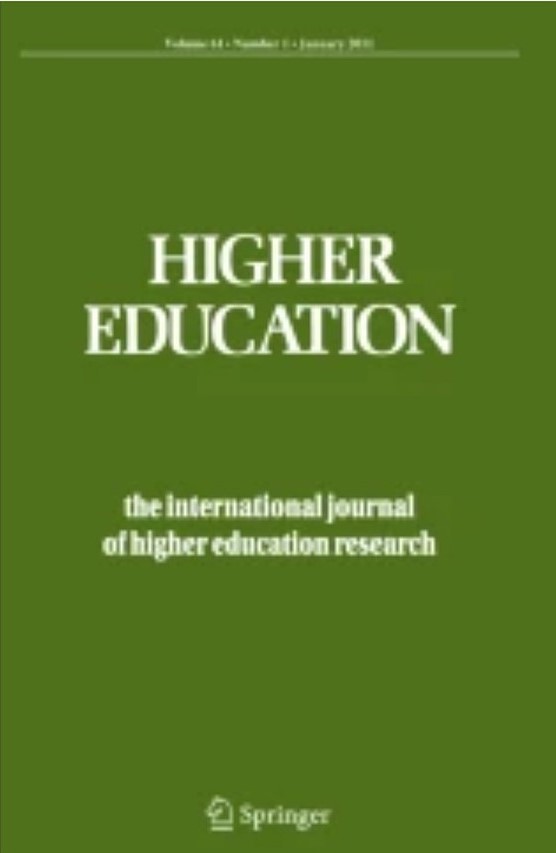
|
Internships are recognized globally as a high-impact practice that substantially enhances students’ future prospects. However, concerns persist about their legality and potentially exclusionary nature. While prior research indicates participation varies based on key variables, such as gender and major, empirical work remains limited and tends to focus on univariate or single-actor explanations.
The data reveal that only 30.3% of the students participated in internships, of which 43.4% were unpaid. Linear probability analysis results indicate that contrary to expectations, individual demographic characteristics, such as gender, were not significant predictors of internship compensation on their own. Instead, academic, institutional, and employer characteristics emerged as significant predictors. Interaction analysis results highlight the combined effects of race, gender, major, MSI status, and employer characteristics in predicting participation in unpaid internships. Further, the data suggest that gender effects are largely influenced by academic major affiliation, emphasizing that unpaid internships do not uniformly affect all students but are predominant in specific sub-groups.
|
|
|
|
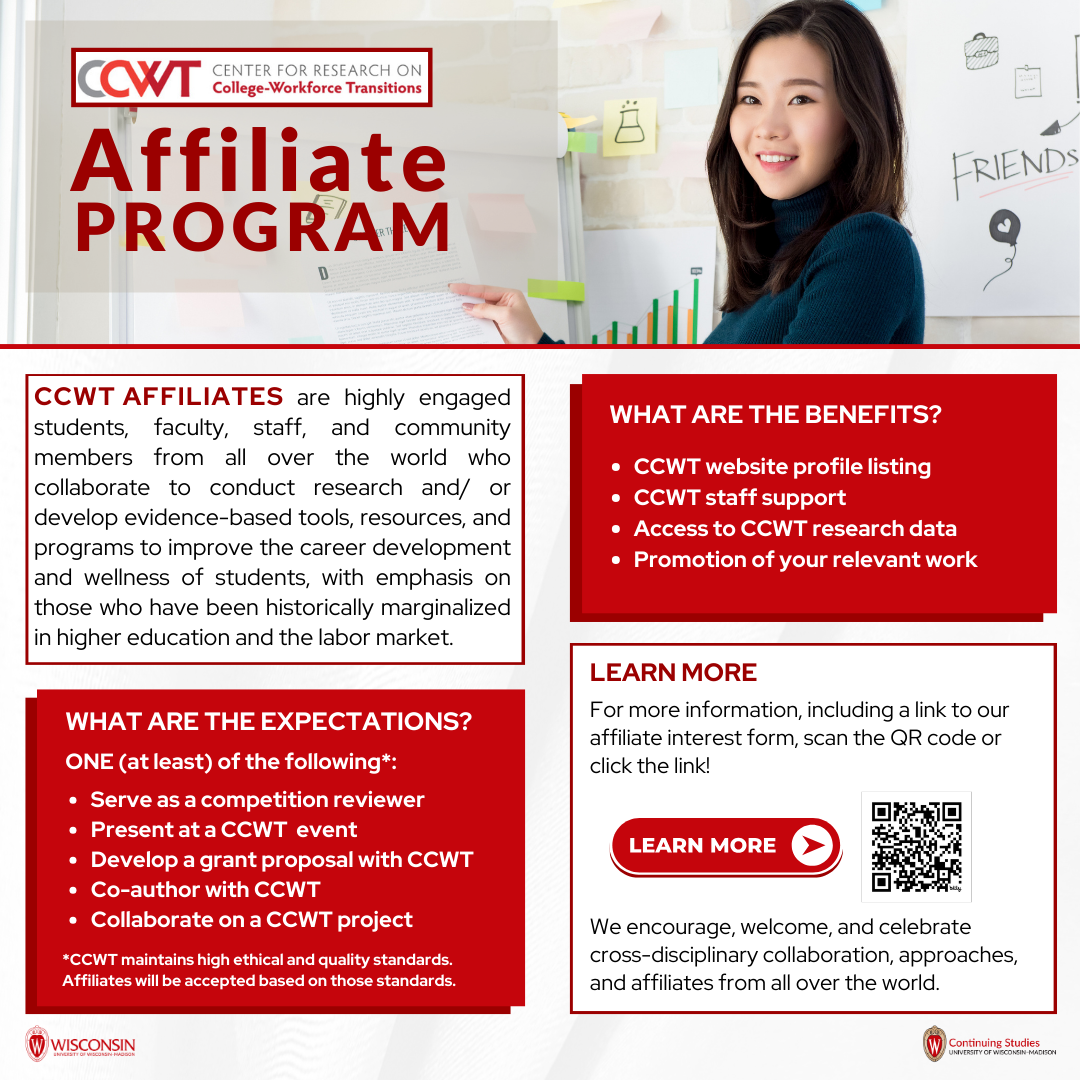
|
CCWT Affiliates met in May 2024 to discuss areas of need and explore opportunities to collaborate in regards to improving career wellness and development outcomes for students. CCWT Affiliates are located across the U.S. and represent a diverse range of backgrounds, skills, and experience, including expertise in research and practice in career development, experiential learning, internships, serving students with disabilities, serving immigrant-origin students, anti-racism, and apprenticeships.
CLICK HERE to learn more about the CCWT Affiliate program and how to apply.
|
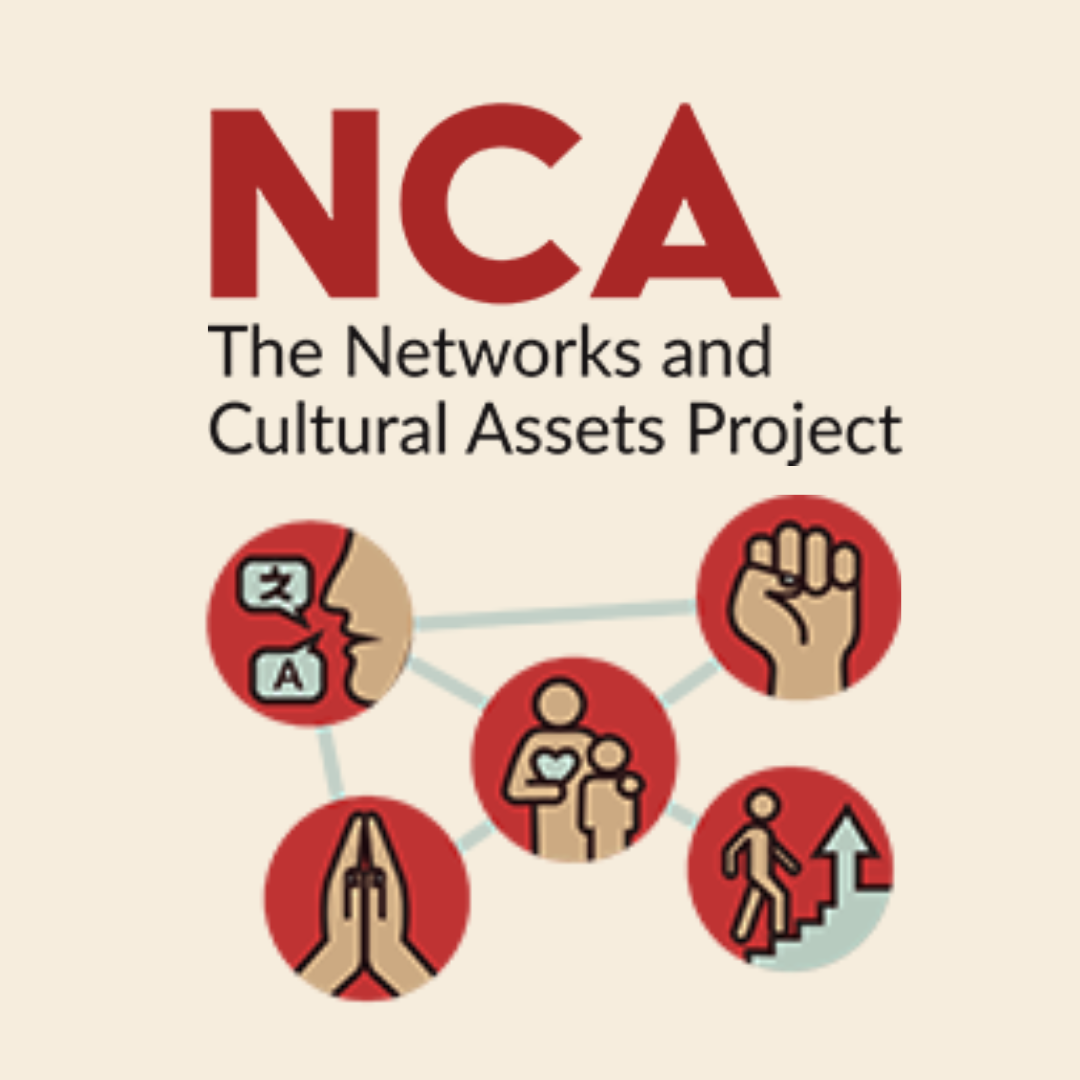
|
The Networks & Cultural Assets Project team conducted surveys and interviews for time period two of the longitudinal study. For this round, survey participants received $30 Amazon gift cards, and those who chose to be interviewed again received $50 Amazon gift cards. The team achieved an astonishing 60% participant retention rate, providing rich data regarding the students’ social networks and Community Cultural Wealth.
|
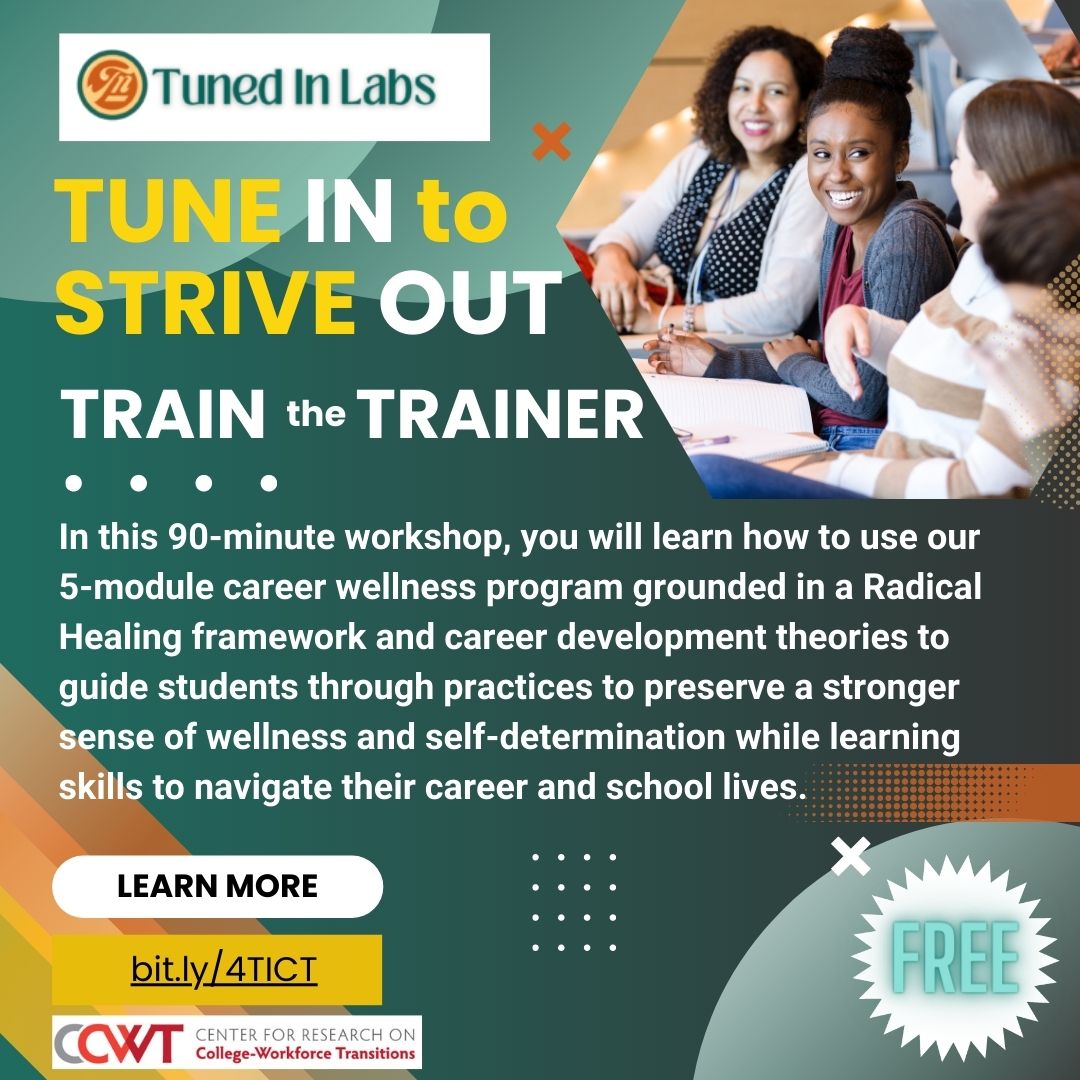
|
CCWT's Tune In to Strive Out Career Wellness & Development program has been introduced to many professionals over the past few months. Thirty-eight professionals received Facilitator Training at the Facilitating Career Development Summer Institute at UW-Madison in July, and the online training video was viewed by another thirty people. Bringing this innovative program to your department or campus is easy and effective!
|
|
|
|
Dr. Matthew Hora talks Quality Internship Access on Inside Higher Ed Panel
|

|
Dr. Matthew Hora was a featured panelist on Inside Higher Ed’s July 10 webcast, “From College to Career: Increasing Access to Quality Internships”. Joined by fellow internship experts, Dr. Hora discussed the realities of modern interning and how to improve that reality for students. Tackling complex issues like the place of unpaid internships, equity in internships, and how educational institutions can improve access to internships and partner with employers to create opportunities for their students.
Dr. Hora contends markers for quality internship experiences extend beyond student satisfaction, noting that quality supervision, performing meaningful labor, and learning transferable skills all drastically impact the value students receive from their interning. Moreover, he notes that access to internships must be a concerted effort between employers and institutions, addressing the disparity between paid and unpaid labor within certain fields and majors which can impact students’ interning experience.
Watch a recording of the webcast here!
|
CCWT Affiliate Dr. Erica Wills’ groundbreaking work featured in Dollars & Sense Magazine's annual labor issue
|

|
In economic magazine Dollars & Sense’s annual labor issue, CCWT affiliate Dr. Ericka Wills discusses empowHER Wisconsin and the individuals and organizations working to create more space for women in the building trades. Currently connecting over 500 individuals "representing all the building trades in Wisconsin", empowHER is an organization that promotes recruitment and retention initiatives for women in the building trades. Highlighting March 2024’s Women Build Wisconsin event, Dr. Wills notes the importance of spaces for tradeswomen to network, learn, and support each other in a field that can be unwelcoming to them.
With running pilot programs providing women with mentorship from experienced tradeswomen and childcare for working mothers, empowHER strives to make the building trades more welcoming for women workers and ensure that women already in trades jobs have the community and resources they need to thrive.
Read Dr. Will's article here!
|
|
|
|
CCWT supports and conducts research and develops evidences-based tools, resources, and programs to promote the career development and wellness of students, with emphasis on those who have been historically marginalized in higher education and the labor market. We are able to pursue this mission thanks to the generous support of our funders.
|
|
|
|
Center for Research on College-Workforce Transitions (CCWT)
Division of Continuing Studies
21 N. Park St., Madison, WI 53715
|
|
|
|
|